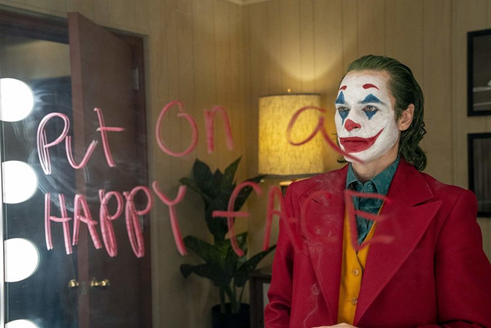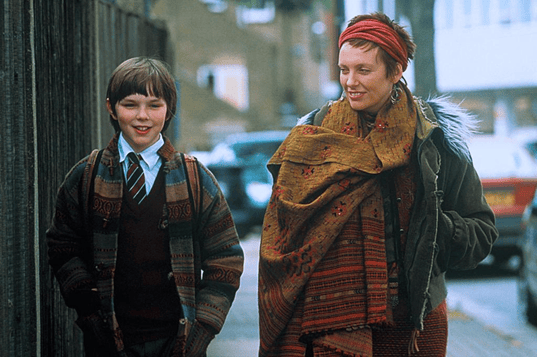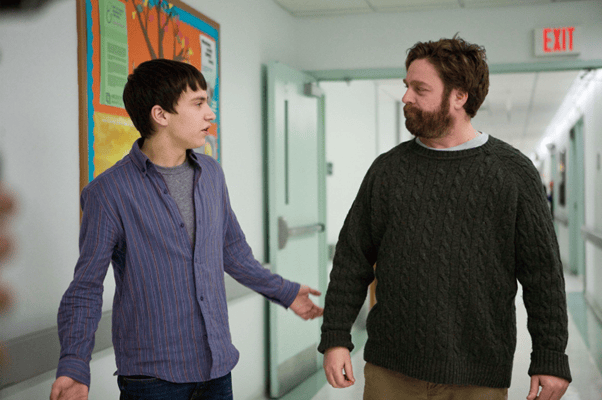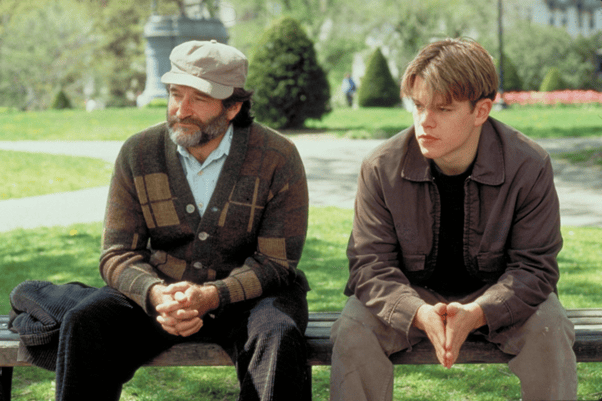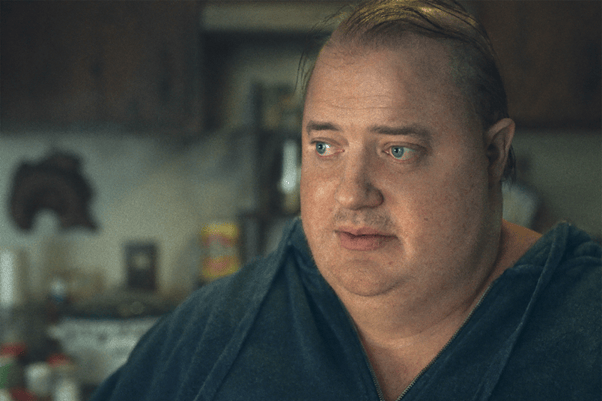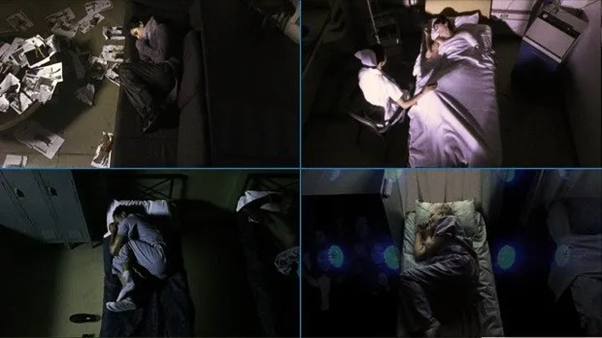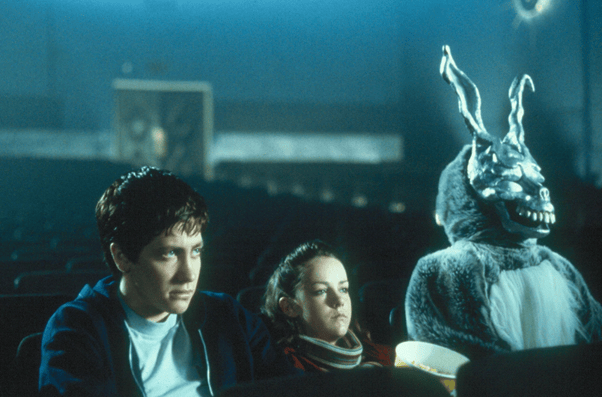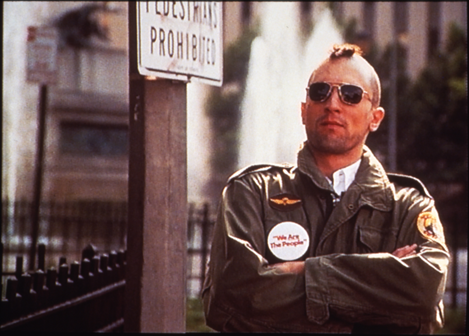Last Updated:
April 3rd, 2025
Have you ever found yourself watching a movie and couldn’t help but roll your eyes at how unrealistic it all seemed? We’re willing to bet that a scene is popping into your mind right now, triggering that feeling. Regarding the portrayal of mental health in cinema throughout the years, it’s no surprise that there have been moments that also made us roll our eyes.
In today’s blog, we embark on a quest to uncover cinematic gems that authentically portray the complexities of mental health challenges. Whether you’re a cinephile seeking thought-provoking narratives or someone with a personal connection to mental health issues, this blog explores how the silver screen can become a powerful means of shedding light on the struggles of mental health conditions.
DISCLAIMER: It’s important to note that while these films may employ dramatisation for entertainment, each strives to maintain a foundation of authenticity regarding mental health depictions. Our exploration will steer clear of passing judgement on whether these portrayals cast an overall positive or negative light on the subject, as our primary goal is to appreciate their commitment to realistic storytelling.
Joker (2019)
Mental Health Condition Depicted: Narcissistic Personality Disorder
“Joker” (2019), directed by Todd Phillips and starring Joaquin Phoenix as the titular character Arthur Fleck, has been both praised and criticised for its portrayal of mental health. While the film has generated significant controversy, it does contain elements that some viewers believe accurately depict certain aspects of mental health struggles.
Interestingly, Arthur’s behaviour was analysed by psychological professionals. It was stated that although Arthur’s psychological condition is not clear, his mix of symptoms suggests a complex combination of psychopathic and narcissistic traits. This meets the criteria for narcissistic personality disorder in the DSM-5.
People with this disorder will likely go to extreme lengths to be noticed and view themselves as highly important. These traits accurately reflect the Joker’s behaviour in the film, with a lot of the focus being on Arthur desperately wanting to be on a TV show and to be noticed.
About a Boy
Mental Health Condition Depicted: Depression
“About a Boy” is a film released in 2002 and follows the story of Marcus’s (Nicholas Hoult) relationship with his mother, Fiona Brewer(Toni Collette).
Fiona struggles with depression and mental health issues throughout the story, and her suicide attempts are depicted with both seriousness and sensitivity.
Fiona is hospitalised after an overdose, and Marcus is taken into custody by social services. This event forces Fiona to confront her mental health issues and seek treatment. It also leads to significant changes in her life and her relationship with Marcus.
Following her suicide attempt, Fiona receives professional help and therapy. With the support of Marcus, Will Freeman (Hugh Grant) and others in her life, she starts to work on her mental health and begins her journey toward recovery. This part of the story highlights the importance of seeking help and the impact of a support network on a person’s mental health recovery.
It’s Kind of a Funny Story
Mental Health Condition Depicted: Depression
“It’s Kind of a Funny Story” is a 2010 film starring Keir Gilchrist (Craig) and Zach Galifianakis (Bobby).
The movie does provide a relatively realistic depiction of depression, particularly in its portrayal of the protagonist, Craig. Craig’s internal struggles, his inability to find enjoyment in activities he once loved and his overwhelming feelings of hopelessness and anxiety are all common symptoms of depression. This portrayal helps shed light on the inner turmoil individuals with depression often face.
One of the central themes of the film is the importance of seeking help. Craig voluntarily admits himself to a psychiatric hospital, which is a crucial step in his journey toward recovery. This mirrors the real-life importance of reaching out to mental health professionals when dealing with depression. It highlights that it’s okay to ask for help and that doing so can be a lifeline.
Good Will Hunting
Mental Health Condition Depicted: Attachment Disorder
“Good Will Hunting” is a 1997 film starring Matt Damon (Will) and Robin Williams (Sean).
The film delves into Will’s troubled past, which includes a history of abuse and neglect. His experiences with attachment figures (or lack thereof) have a significant impact on his emotional well-being and behaviour. The therapeutic relationship he forms with his therapist, Sean Maguire, is central to his healing process and reflects the principles of attachment theory.
A significant portion of the film focuses on the therapeutic relationship between Will and his therapist. The therapy sessions highlight the process of exploring past traumas, confronting emotional pain and ultimately healing. It provides insight into the therapeutic process and the importance of empathy and trust in therapy.
The Whale
Mental Health Disorder Depicted: Binge Eating Disorder
The Whale is a 2022 movie starring Brendan Fraiser (Charlie). After his lover’s death, Charlie’s grief transforms into a deep and intense state of depression, eventually leading him towards a problem with binge eating. He turned to overeating as a way to cope with the overwhelming negative emotions that were taking over his life.
“The Whale,” unlike many other movies, doesn’t shy away from showing the complexity of this disorder. It not only explores how Charlie finds comfort in overeating but also shows the harsh physical effects, like moments when he chokes on food or has episodes of vomiting. Charlie’s self-destructive behaviour is heart-wrenching to watch, but it’s an important way for the audience to understand the depth of his ongoing struggles.
Requiem for a Dream
Mental Health Condition Depecticed: Substance Use Disorder (SUD)
“Requiem for a Dream” is a 2000 film starring Jennifer Connelly and Jared Leto. It’s known for its unflinching and gritty portrayal of substance abuse. It doesn’t glamorise drug use but instead shows the harsh realities of addiction. The film presents the physical and emotional toll it takes on individuals.
The movie follows four characters whose lives are intertwined by their addiction to various substances, including heroin and amphetamines. Each character’s story illustrates a different aspect of addiction, from the initial allure to the descent into desperation.
The film depicts how substance abuse can escalate rapidly, as characters initially experiment with drugs for recreational purposes but soon find themselves trapped in a vicious cycle of dependence. This escalation is portrayed through increasingly intense and destructive behaviour.
Donnie Darko
Mental Health Condition Depicted: Paranoid Schizophrenia
Donnie Darko is a 2001 film starring Jake Gyllenhaal as Donnie Darko. Many watching the film suggest that it’s far fetched and surreal, especially with the addition of human-sized rabbits and time travel. But is it really just a ‘crazy’ movie?
Research has suggested that Donnie shows strong indicators of paranoid schizophrenia.
“From watching the movie and observing Donnie’s actions, I believe that Donnie was a paranoid schizophrenic as indicated by his many symptoms that were apparent throughout the movie.”
“For a diagnosis of paranoid schizophrenia, a person must exhibit two or more positive symptoms from the following list: hallucinations, delusions, unusual affects and disorganised speech or behaviour: Donnie had the positive symptoms of hallucinations and delusions.”
Source: Paranoid Schizophrenia in the movie Donnie Darko
These symptoms are consistent with what individuals with paranoid schizophrenia may experience. The movie effectively captures the disorienting and fragmented nature of these hallucinations, blurring the line between reality and imagination.
Many viewers may assume that Donnie’s hallucinations and behaviour are exaggerated for cinematic purposes. While this may hold true for certain scenes, it is evident that thorough research was conducted on the condition before filming the movie.
Taxi Driver (1976)
Mental Health Condition Depicted: Schizotypal Personality Disorder (STPD)
“Taxi Driver,” directed by Martin Scorsese and released in 1976, is known for portraying the protagonist, Travis Bickle, played by Robert De Niro, who exhibits various traits associated with schizotypal personality disorder (STPD). It’s important to note that the film doesn’t explicitly diagnose Travis with STPD, but his behaviour and characteristics align with some of the disorder’s features.
Let’s take a look at some key indicators:
STPD individuals often hold eccentric or unusual beliefs and may engage in magical thinking. Travis exhibits this when he develops a fascination with guns and believes he can cleanse the city of its perceived moral decay through violence.
STPD individuals may experience paranoid thoughts or ideas. Travis becomes increasingly paranoid about society’s perceived moral decay and begins to view himself as a saviour figure who must take violent action to clean up the streets.
Travis experiences social anxiety, a common feature of schizotypal personality disorder. He finds it challenging to interact with others and often feels uncomfortable in social situations.
Getting help for mental health issues
If you or someone you know can relate to any of the conditions mentioned in this blog and want to seek guidance for your mental health, don’t hesitate to call us. Remember, taking that step towards seeking help for your mental health is a courageous stride toward a better, more fulfilling life. At UKAT, we are dedicated to providing the support you require on this journey. You don’t have to face your battles alone; reach out to us today, and together, we can work towards a brighter tomorrow.


